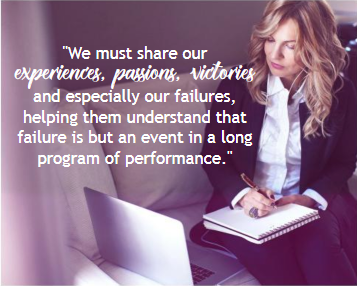Globally, women are finally entering into boardrooms without having to knock, and they are not just there to serve the coffee. We are managing businesses, large or small, employing multiple solutions without trepidation, and jack hammering every glass ceiling in our way, or at least taking a shot at it. We are standing up for our truths, flaunting our power suits, high heels and unique personalities without apology. In 2015, according to the National Architectural Accrediting Board (NAAB), 44 percent of the graduates in its accredited college program were women. The 2016 National Association of Realtors (NAR) Member Profile reveals that women comprise 62 percent of Realtors in the U.S. market, 21 percent also hold broker licenses and 16 percent hold broker associate licenses. Additionally, women in real estate are no longer limited to salesperson roles, but are builders, welders, roofers, plumbers and environmental assessment experts. It is important to explore just how difficult the journey has been, and to celebrate the fact that we continue to face our challenges head on, impacting our industry sectors positively just by taking up and owning our spots.

At birth, three words determined your life for the foreseeable future—“It’s a girl”—and your journey began. Do you get an education? Do you attend the same schools, participate in the same activities and take the same classes as the male siblings in your family, or do your parents provide you with less, expecting you to grow into a docile young woman who should be seen and not heard? Hopefully the former applied in your case, and off to school you went, pink backpack, pretty dress and all, and life as you knew it changed forever.
According to a study conducted by the Harvard Graduate School of Education’s Making Caring Common Project, the “glass ceiling” concept is identified as early as middle school, with girls being
multiple times less likely to gain acceptance into leadership
positions, even by other girls in their grade. One of their most surprising findings was that 23 percent of girls preferred a male student in leadership, and only 8 percent preferred a female leader. Conversely, male students were 40 percent more likely to prefer a male leader, and only 4 percent were more likely to prefer a female.
College would present an even greater challenge. Female students were not expected to take certain courses, and the ones who chose to sign up for them would be seen as oddities. As a result, females would trend towards the “acceptable” careers—nursing, teaching, secretarial services, etc., while careers in engineering, architecture and law were seen as too masculine.

I remember being the only female signed up for Taxation Law in law school, walking into the classroom to some appalled looks, walking out and signing up for Family/Divorce law, which was where I found the majority of my female colleagues. This is why I chose to get my Master of Laws (LL.M) degree with a concentration in Taxation when I decided to go back to school.
Fast forward and you are a gung-ho magna cum laude graduate with notions of becoming a great housing advocate. You apply for that dream job with a top notch real estate firm, and the harsh realities of your gender situation start to become apparent. One interviewer asks why you decided on this particular career. Another one asks you how you plan to juggle a career once you get married and start having children. Yet another smirks and gives you the leering look-over from hair to heels as you walk into the room, and hopefully as you turn right around and walk out. Finally you find that one person willing to look past your gender and accept your intelligence and capability, and so your career begins.
Everything is perfect until you find out that for every seventy cents you are paid, Joe Smith in the next cubicle is paid a dollar. It wouldn’t hurt so much, except that you are far more intelligent, work much harder, are much more dependable and achieve much better results than him. You have a decision to make. You may have the luxury of quitting the job, setting up your own business and thriving, or you may decide that it is the lesser of two evils to stay in the position and make the best of it.
I have spent time detailing with the preceding paragraphs because in order to recognize our growth as women in this industry, we must discuss, acknowledge and accept our past. We have come a long way in the battle, and while we may not have equality, at least we have growth. That we are able to have public conversations about these inequalities, and the fact that even President Barack Obama has spoken out in favor of income equality, is definitely moving the needle in the right direction.
The role of mentorship in the continued growth of women in our industry cannot be over-emphasized. In my opinion, every woman with at least 10 years in the industry should be a mentor. It is extremely important that we start to reassure the ones coming behind us of their relevance in the industry. We must calm their fears by helping them learn to block out the noise and focus on themselves, delivering their best capacities with every assignment they handle. We must protect them from harassment, sexual or otherwise, and believe them when they bring their stories to us. We must consciously hold back from only speaking to give negative criticism, but ensure that we use criticism as a learning and growing tool. We must share our experiences, passions, victories and especially our failures, helping them understand that failure is but an event in a long program of performance. We must help them recognize who they are, develop their own set of personal standards, judge themselves through their own lenses and learn that passion will illuminate their spirit, while corruption will kill it.
Most importantly, we must continue to encourage them no matter what happens, to wake up, get up, put on the power suit, the high (or low) heels, the lipstick (or not), walk into their personal boardroom without a knock or an apology, and continue to grow.
Adenike Fasanya-Osilaja
Lawyer, International Housing and Mortgage Consultant, Trainer & Facilitator,
Newspaper Columnist and Public Speaker, National Housing/ Mortgage Finance Specialist Consultant for the Central Bank of Nigeria

 Login
Login
